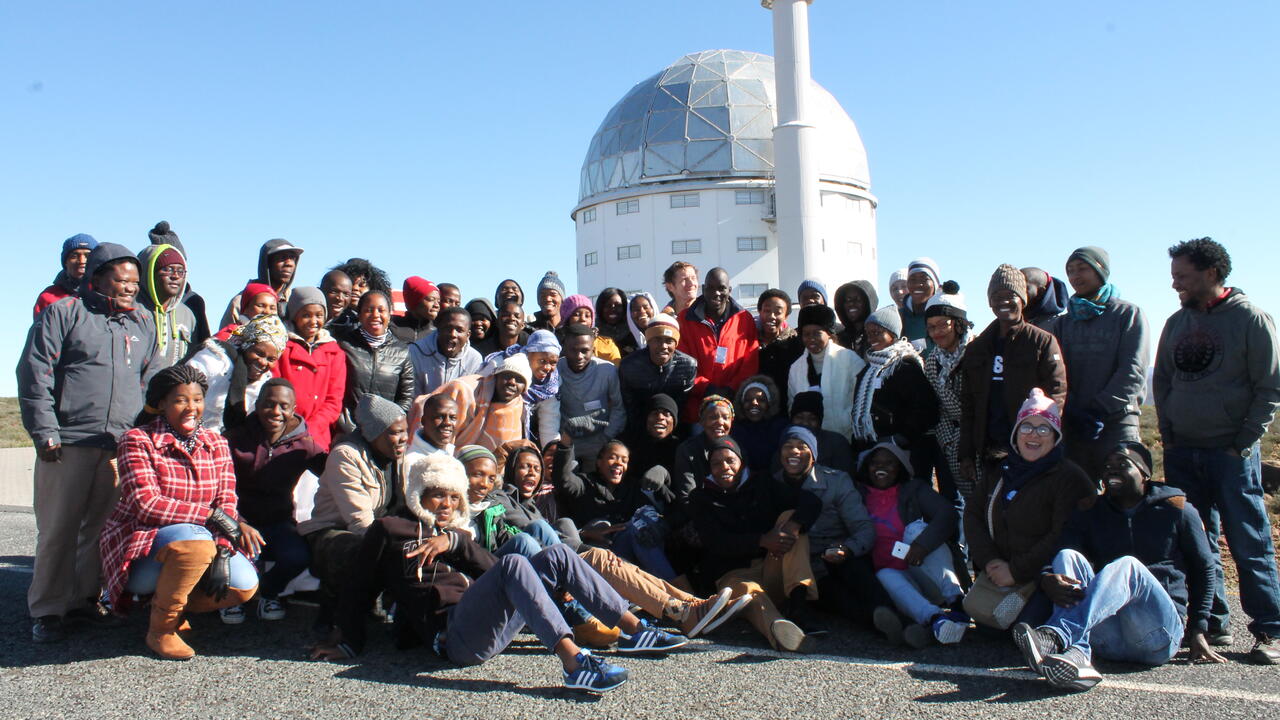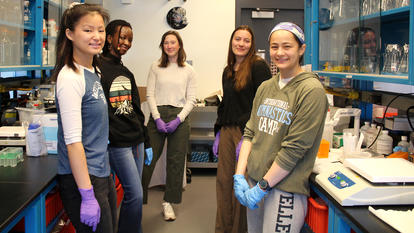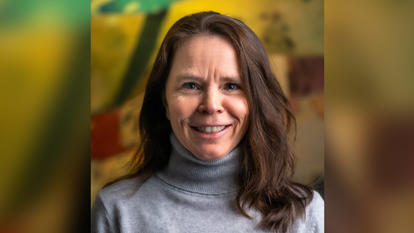Lucia Perez ’14 Shares Her Fulbright Experience: “This is How You Make a Strong World”

Lucia Perez ’14 recently completed a Fulbright Student Research Fellowship that didn’t go exactly as planned but lead to some deep insights about how to make communities, and perhaps the world, a little stronger and more connected. Perez, now a Ph.D. student in the astrophysics program at Arizona State University (ASU), took her Fulbright to South Africa to work with Dr. Thebe Medupe, a leading astrophysicist in South Africa who specializes in astroseismology, the branch of astrophysics that uses the pulsations within stars to determine their properties.
“I started off my Fulbright following what I'd applied to do; I searched through the SuperWASP database, which tracks the light curves of thousands of stars that might have exoplanets, to try and find some whose light curves were being affected by pulsations within the inner layers of the star instead of an exoplanet orbiting them,” she said. “Unfortunately, the SuperWASP data didn't yield anything conclusive and we had to move on. It's disappointing, but good science involves occasionally stumbling over unusable data.”
Perez said her work shifted focus and she ended up going through and organizing a database and a very large archive of images that Medupe and his students had taken of target stars. She also had the opportunity to conduct outreach and said that the true highlight of her Fulbright experience was taking part in the South African Astronomical Observatory Winter School, which Medupe conceived and has been running for several years. The school is for college-aged students.
“Apart from the introduction to astronomy, we all got to tour South Africa's astronomical heart with the group, learning all about the world-class telescopes deep in the mountains of the Northern Cape,” she said. “Those last few weeks were so incredible, and really felt like the culmination of everything that my Fulbright Fellowship was supposed to be about: the science of astronomy, the joy of sharing it, and the value of creating rich, individual relationships with people of a different culture.”
Perez said she has spent a lot of time reflecting on the meaning of the Fulbright, along with what it meant for her to take part in it. “[The Fulbright] is meant to achieve diplomacy in a different way, in the form of relationships between neighbors and coworkers and friends, rather than embassies and trade agreements,” she said.
She continued, “At the end of the Winter School, after all the projects had been done... Dr. Medupe spoke to the students, congratulating them on their achievements, sharing his hopes that they'd continue in astronomy, and expressing his joy at seeing them connect and grow. ‘This is how you make a strong South Africa,’ he said, of all the friendships the students had made with each other, nearly all of them having never travelled out of their province and having never really gotten to know people outside of their communities. And when he said that, I found myself thinking, ‘this is how you make a strong world, by traveling and creating connections with people that share your passions.’”
Perez said she is looking forward to continuing the research on pulsating stars with Dr. Medupe, and to mentoring more generations of budding South African astronomers at future Winter Schools.
This past spring, before leaving for her Fulbright Program, Perez spoke with Huffington Post blogger and “women’s college advocate” Diane Propsner where, in addition to discussing her plans for the Fulbright, she discussed her Wellesley experience. “I immediately felt at home amongst the other students, and I was welcomed as an intellectual. Their incredible financial aid and academic record also helped,” she said.
Perez, who attended an “all-girls” school from the seventh grade on said that the all-women environment is “exactly what made Wellesley so incredible!” She said she “loved the care that the teachers gave to each student and the environment of community and encouragement. I felt like I mattered as an individual, and that people believed in my ability to succeed.”
She said she was initially hesitant to apply to Wellesley, but a visit to campus during Spring Open Campus weekend sealed the deal for her. “I got that same feeling that I mattered and that Wellesley wanted me to succeed and that it would support me in that. I could immediately see what a strong feeling of community and intellectual curiosity came from every crevice of that gorgeous campus, and I could see myself being happy and thriving there. I didn’t feel that at any of the other schools I visited.”



